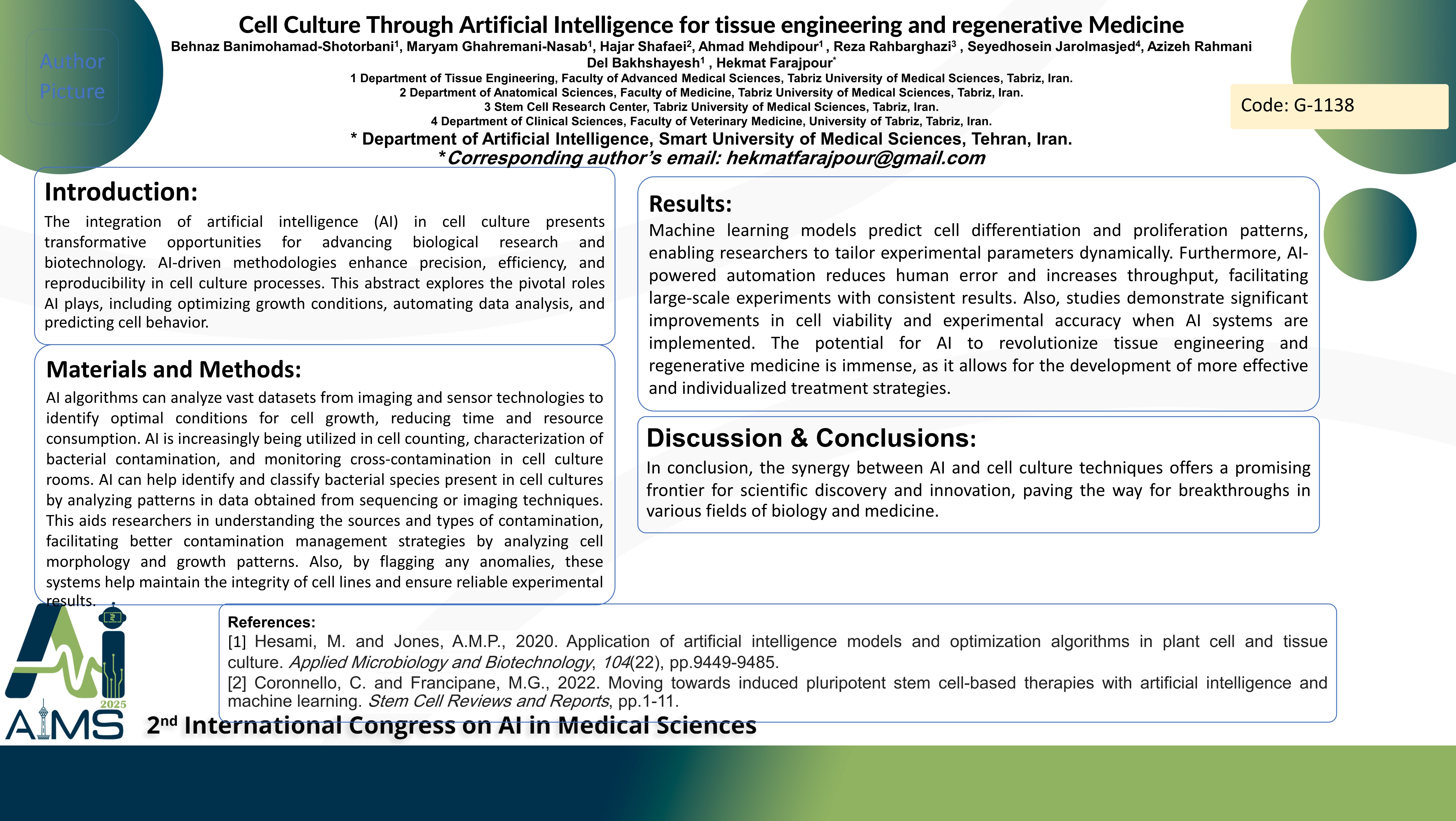Cell Culture Through Artificial Intelligence for tissue engineering and regenerative Medicine
Code: G-1138
Authors: Behnaz Banimohamad-Shotorbani ℗, Maryam Ghahremani-Nasab , Hajar Shafaei, Ahmad Mehdipour, Reza Rahbarghazi , Seyedhosein Jarolmasjed, Azizeh Rahmani Del Bakhshayesh , Hekmat Farajpour *
Schedule: Not Scheduled!
Tag: Robotics in Surgery and Care
Download: Download Poster
Abstract:
Abstract
Background and Aims: The integration of artificial intelligence (AI) in cell culture presents transformative opportunities for advancing biological research and biotechnology. AI-driven methodologies enhance precision, efficiency, and reproducibility in cell culture processes. This abstract explores the pivotal roles AI plays, including optimizing growth conditions, automating data analysis, and predicting cell behavior. Methods: AI algorithms can analyze vast datasets from imaging and sensor technologies to identify optimal conditions for cell growth, reducing time and resource consumption. AI is increasingly being utilized in cell counting, characterization of bacterial contamination, and monitoring cross-contamination in cell culture rooms. AI can help identify and classify bacterial species present in cell cultures by analyzing patterns in data obtained from sequencing or imaging techniques. This aids researchers in understanding the sources and types of contamination, facilitating better contamination management strategies by analyzing cell morphology and growth patterns. Also, by flagging any anomalies, these systems help maintain the integrity of cell lines and ensure reliable experimental results. Results: Machine learning models predict cell differentiation and proliferation patterns, enabling researchers to tailor experimental parameters dynamically. Furthermore, AI-powered automation reduces human error and increases throughput, facilitating large-scale experiments with consistent results. Also, studies demonstrate significant improvements in cell viability and experimental accuracy when AI systems are implemented. The potential for AI to revolutionize tissue engineering and regenerative medicine is immense, as it allows for the development of more effective and individualized treatment strategies. Conclusion: In conclusion, the synergy between AI and cell culture techniques offers a promising frontier for scientific discovery and innovation, paving the way for breakthroughs in various fields of biology and medicine.
Keywords
Artificial Intelligence, Cell Culture, Tissue Engineering
